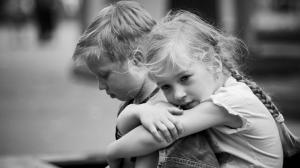Systems that govern our lives
Have you ever had that strange feeling of not being the same person with everyone?
I remember being struck by a striking description of our modern condition years ago. It made me reflect, and to some extent, the effect of a revelation. It was based on the following image, easy to visualize and verify: modern man spends his time locked in boxes.
- Related article: "What is social psychology?"
A life divided into many plots
Said like that, it seems crazy, but if you look… Your flat is a big box with different rooms or rooms that are smaller boxes or sub-boxes. To get around, you go down the elevator to the garage, take the car, the bus, the train or the plane, which are all moving boxes. The stores where you shop, the factories, the offices where you work are more and more boxes. We spend the day, the night and our lives going from boxes to boxes.
Once we visualize the metaphor of moving from one box to another, it is much easier to address the systems that govern our lives. because to some extent
the people we find in the different boxes are not the same and our relationship with them is different.For example, we do not behave in the same way with co-workers as we do with members of the family, and within the family, we do not behave in the same way with our parents as with our children.
The comparison between boxes and systems has its limits, but I think it helps a lot to get an idea of the importance of systems in our lives. Now that we are clear about the difference between the different types of relationships we have with different people with whom we share time, we can enter more fully into the subject of systems.
- You may be interested in: "Existential crisis: when we don't find meaning in our lives"
What are the systems?
To speak of systems in psychology is to refer to systemic theory, which is a mixture of general system theory, cybernetics and communication.
Just as modern man needs his boxes, man needs systems. AND The first system in which we develop is the family.
The family, or the family system is the smallest social unit. It gives us life support and covers our first needs. No man develops or survives immersed in nature, but through his belonging to different social groups that act as intermediaries with the environment. The human baby does not survive without a mother to nurse it, or a caregiver who feeds, protects and instructs it.
This is how the mother-son pairing is the simplest expression of what we can consider a family system. But we quickly realize that that first system could not survive without the support of others either. Usually the mother-child pairing is the subsystem of a more extensive family system, or of some suprasystem that provides support (neighborhood, tribe, commune, association, society...).
All the systems in which we participate are open systems, which do not work in a closed circuit., but they present a dynamic of interaction with the outside, that is, beyond the members of the system itself.
Just like the modern man who changed boxes, we change systems when we interact with members of different systems. That is why we can talk about "the" systems that govern our lives, because we are immersed in a multitude of them.
To better understand what a system is, we will refer to the concepts that define them following the general theory of systems:
- Concept of totality: the whole is more than the sum of its parts and what affects one part affects the rest.
- Concept of circularity: actions are reactions, circular and non-linear relationships.
- Concept of equifinality: there is more than one way to do things.
- Concept of equicausality: the same causes do NOT always produce the same effects.
- Constraint: We tend to repeat bounded forms of interaction in predictable ways. * Relationship rule: the relationships between members of a system conform to rules that can be explicit, implicit, or secret.
- Hierarchy: In a system, some members have more power and responsibility than others.
- Teleology: a system pursues a final goal, an ultimate purpose or end that is usually related to keeping its members together and perpetuating itself.
- Homeostasis: is the tendency of a system to maintain its unity, identity and balance in the face of the changing external environment.
- Morphogenesis: is the tendency of the system to change shape and evolve.
- Feedback: the results of an action are fed back into the system as a control method to indicate whether the action was positive or negative.
- Forefeeding: is anticipation, based on learning about highly probable future events.
In conclusion…
If they affect you too much, things that happen to others.
If you believe that your actions, they are more like reactions.
If you think there is another correct way to do things.
If you realize that the solutions you use are no longer effective. Or if you have the feeling of being involved in the same type of dynamics in your relationships over and over again… In spite of yourself.
then you are interested discover what systems govern your life and what you can do about it to balance them optimally.
And if you have realized thanks to this article that you spend a lot of time locked up. Get out of your comfort box.



